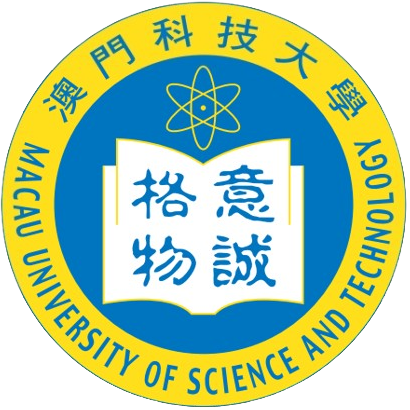Macau University of Science and Technology confers 2025 Honorary Doctorate Degree upon 8 Outstanding Individuals
Macau University of Science and Technology (MUST) is proud to confer 2025 Honorary Doctorate degree upon 8 outstanding individuals in recognition of their outstanding achievements in their respective professions and valuable contributions to the well-being of society. The conferment ceremony will be held during the MUST 25th Anniversary on March 27, 2025.
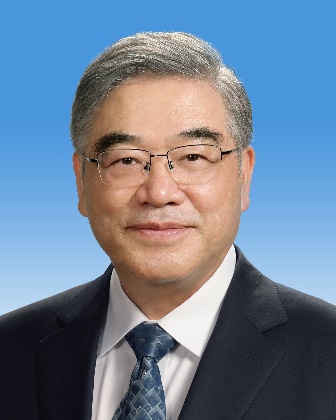
Zhu Yongxin
Zhu Yongxin is a professor at Soochow University, Vice Chairman of the National Committee of the Chinese People's Political Consultative Conference, Executive Vice Chairman of the Central Committee of the China Democratic National Construction Association, and a doctoral supervisor. He is a member of the “Ming Shi Tang” of the Yidan Prize, the president of the China Tao Xingzhi Research Association, the vice president of the China Institute of Education and Social Development, and a part-time professor at Peking University, Beijing Normal University, East China Normal University, Tongji University, and other universities. He is also a co-founder of the New Education Initiative, the China Education 30 Forum, and the 21st Century Education Development Research Institute.
Zhu received his doctorate in management from Tongji University in 1996 and worked as a postdoctoral researcher at the School of Economics and Management of Fudan University from 1998 to 2000. He has been a visiting scholar or researcher in Japan, Hong Kong, and the United States. He has presided over more than ten research projects commissioned by UNESCO, the National Natural Science Foundation of China, the National Social Science Foundation of China, and others, and has won many awards. He has published more than 300 education papers in academic journals in the United States, the United Kingdom, Japan, and China. He has published more than 240 books and translations in various categories at home and abroad, with a series of original research results, especially in reading theory and teacher education theory. More than 20 of his books, including “Zhu Yongxin’s Educational Works,” have been translated into nearly 90 texts in 28 languages such as English, Japanese, Korean, French, Mongolian, Russian, Arabic, and Kazakh, making him the first person to export personal educational theoretical works of contemporary Chinese educators overseas.
Due to his unwavering pursuit of educational ideals and persistent actions, Professor Zhu has been selected for several prestigious international and domestic awards. He has been awarded the “Yidan Education Development Award,” which is considered the world’s largest education prize. He is also a recipient of the “IBBY Love Reading Personality Award” from the International Board on Books for Young People, a member of the “Yidan Award Mentors, ” a renowned “Contemporary Education Master” in China, a “National Reading Image Ambassador, ” the “Person of the Year for the Public Interest, ” the highest award for educational innovation in China, the “SERVE Award, ” the “China’s 60 Years of Education: 60 People” award, the “Top Ten Education Talents in China, ” the“Top Ten Reform Figures in China, ” and the “Top Ten Financial Intellects in China, ” among other well-known international and domestic accolades.
In 2000, Zhu initiated a new education initiative with the aim of “living a happy and complete education life,” which attracted more than 10,000 schools from all over the country to join the experiment, profoundly changing the educational concepts of nearly 10 million teachers and students. His educational ideas and research results have greatly promoted the development of China's education and international education exchanges.
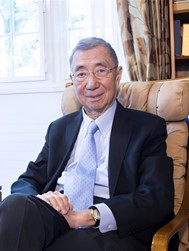
Samuel C.C.Ting
Samuel C. C. Ting is a globally renowned physicist and Nobel laureate who has made groundbreaking contributions to the field of experimental particle physics and astrophysics. In 1974, Ting discovered a new form of matter and named it the“J particle.”This research integrated existing particle physics theories, which is referred to as the“November Revolution”in the field of particle physics. In 1976, Ting was awarded the Nobel Prize in Physics for his discovery of the J particle.
Samuel C. C. Ting pursued his undergraduate studies in the Physics and Mathematics departments at the University of Michigan in the United States. In 1959, he obtained a Bachelor's degree in Physics and Mathematics. In 1960, he earned a Master's degree in Physics, and in 1962, he completed his Ph.D. in Physics at the University of Michigan.
Currently, Ting holds a faculty position as a chair professor at the Massachusetts Institute of Technology (MIT) in the United States. He has long been leading international teams of experts in experimental exploration at the European Organization for Nuclear Research (CERN) in Geneva, Switzerland. His research experience focuses on conducting experiments in particle physics in accelerators and on the space station.
Ting’s academic research achievements are remarkable. He has been elected as a fellow of various esteemed institutions, including the American Academy of Arts and Sciences (1975), Academia Sinica in Taiwan (1976), the National Academy of Sciences in the United States (1977), the Pakistan Academy of Sciences as a foreign member (1983), the USSR Academy of Science as a foreign member (1988), the Hungarian Academy of Sciences as a foreign member (1993), the Chinese Academy of Sciences as a foreign member (1994), the Russian Academy of Sciences as a foreign member (1995), the Deutsche Academy Naturforscher Leopoldina of Germany as a member (1996), the Royal Spanish Academy of Science as a foreign member (2003), and an honorary fellow of the Tata Institute of Fundamental Research in Mumbai, India (2004).
In addition to his Nobel Prize for Physics, Ting has also received several other prestigious awards, including the Ernest Orlando Lawrence Award U.S. government (1976), the Eringen Medal from the Society of Engineering Sciences of the United States (1977), the DeGaspari Award in Science from the Government of Italy (1988), the Gold Medal for Science from Brescia, Italy (1988), and the NASA Public Service Medal (2001), among many others.
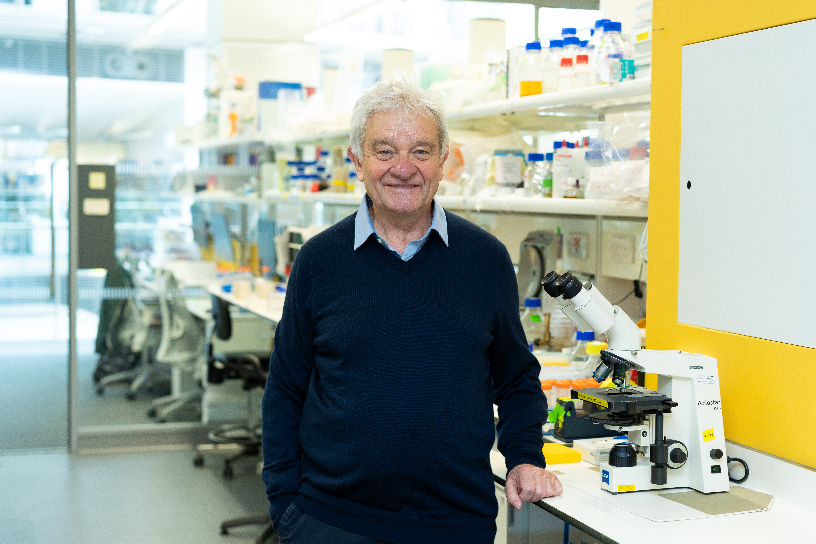
Sir Paul Nurse
Paul Nurse is a geneticist and cell biologist who works on how the eukaryotic cell cycle is controlled. His major work has been on the cyclin dependent protein kinases and how they regulate cell reproduction.
Paul Nurse was born in Norfolk and raised in London, where he attended Harrow County Grammar School. In 1970 he received a degree in biology at the University of Birmingham and a PhD in 1973 from the University of East Anglia for research on amino acid pools in Candida utilis. After postdoctoral studies at the University of Edinburgh, he embarked on his illustrious research career successively at the University of Sussex, the Imperial Cancer Research Fund, the University of Oxford and Rockefeller University.
He is currently Director of the Francis Crick Institute in London, Chancellor of the University of Bristol, and has served as President of the Royal Society, Chief Executive of Cancer Research UK and President of Rockefeller University. He shared the 2001 Nobel Prize in Physiology or Medicine and has received the Albert Lasker Award, the Gairdner Award, the Louis Jeantet Prize and the Royal Society’s Royal and Copley Medals. He was knighted in 1999 made a Companion of Honour and awarded the Order of Merit in 2022 for services to science and medicine in the UK and abroad, received the Legion d'honneur in 2003 from France, and the Order of the Rising Sun in 2018 from Japan. He served for 15 years on the UK Council of Science and Technology, advising the Prime Minister and Cabinet, and was a Chief Scientific Advisor for the European Union. In 2020 he wrote “What is Life” which has been published in 22 countries. Paul flies gliders and vintage aeroplanes and has been a qualified bush pilot. He also likes the theatre, hill-walking, going to museums and art galleries, and running very slowly.
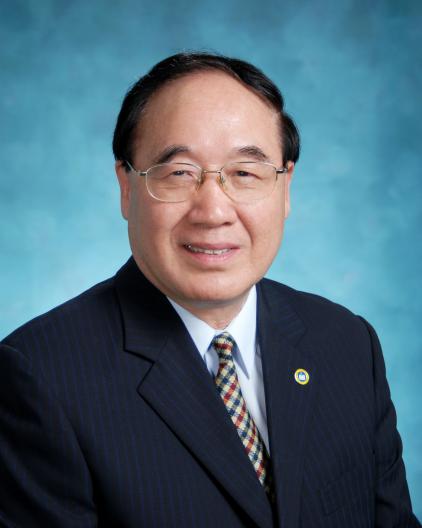
Xu Aoao
Xu Aoao, a renowned astronomer and higher education administrator, is an Academician of the International Academy of Astronautics and the Emeritus President of MUST. Graduating from Nanjing University’s Department of Astronomy in 1962, he remained as a faculty member, focusing on solar physics and related fields, as well as higher education management.
From 1992 to 2002, Xu served as the Dean of Academic Affairs and Vice President of Nanjing University. In 2001, Xu was awarded the First Prize of the 4th National Teaching Achievement Award.
In 2003, Xu was invited to assume the presidency of MUST. Xu pioneered general education in Macao’s higher education sector and fostered a campus culture centered on “harmony and professionalism.” Under his leadership, MUST focused on academic excellence in the second decade, achieving breakthroughs in traditional Chinese medicine, space science, and historical-cultural research. In 2010, it earned approval from China’s Ministry of Science and Technology to establish the State Key Laboratory of Quality Research in Chinese Medicine (MUST)—the first national key laboratory in Macao. He propelled MUST into the ranks of the top 100 universities in the Cross-strait, Hong Kong and Macao.
After stepping down as president in 2013, Xu continued focusing on China’s deep-space exploration initiatives. He established a lunar and planetary science research platform at the university. He lead teams in data analysis of China’s landmark “Chang’e Project” lunar exploration program. In 2014, the Space Science Institute he founded became the Chinese Academy of Sciences’ first overseas key laboratory. By 2016, Xu contributed to China’s another major national project, “Tianwen Project,” playing a pivotal role in the successful landing of the “Zhurong” Mars rover. In 2018, MUST was approved by the Ministry of Science and Technology to establish the “State Key Laboratory of Lunar and Planetary Science.”
Xu has received numerous accolades, including the Chinese Academy of Sciences Award for Scientific and Technological Progress, the State Education Commission Science and Technology Progress Award, the National Natural Science Award, the First Price in the Macau Natural Science Award, and the Medal of Merit - Professions from the Macao SAR Government, etc. In 2016, asteroid 55901 was permanently named “Xuaoao” in honor of his exceptional contributions to astronomy and higher education.

David Gubbins
David Gubbins is a British geophysicist specialising in geomagnetism and seismology. Educated at Cambridge University, he obtained a B.A. in Natural Sciences, in 1968, M. Math in 1969, and Ph.D. in Geophysics in 1972. From 1972-75 he worked at University of Colorado, MIT, and UCLA before returning to the Department of Geodesy and Geophysics, Cambridge. In 1989 he went to head geophysics at Leeds University, where he is now Emeritus Professor of Geophysics. He is also Honorary Professor at MUST and Research Associate at the Scripps Institution of Oceanography, San Diego, California.
He is best known for his work on the dynamo theory of the origin of the Earth’s magnetic field, elucidating the power source for the dynamo, and the compilation and analysis of historical and current geomagnetic observations. He has also worked in earthquake seismology, developing early methods of seismic tomography and conducting a survey of anomalous earthquake signals in New Zealand. He has recently turned his attention to that part of the magnetic field due to magnetised crustal rocks, developing new methods of analysis of the magnetisation. He is part of the Macau Science Satellite team at MUST, in the Macau Institute of Space Technology and Application. His research has benefitted enormously from a string of excellent students, which includes two fellows of the Royal Society, the first woman to be appointed to a Chair of Geophysics in the UK, and another the first Professor of either Geology or Geophysics in Australia.
He was elected a Fellow of the Royal Society in 1996, of the American Geophysical Union in 1985, and of the Institute of Physics in 1996. He is a Foreign Member of the Norwegian Academy of Science and Letters and Honorary Member of the European Geosciences Union. He has been awarded with the Gold Medal of the Royal Astronomical Society, Fleming Medal of the American Geophysical Union, and Arthur Holmes medal of the European Geosciences Union.
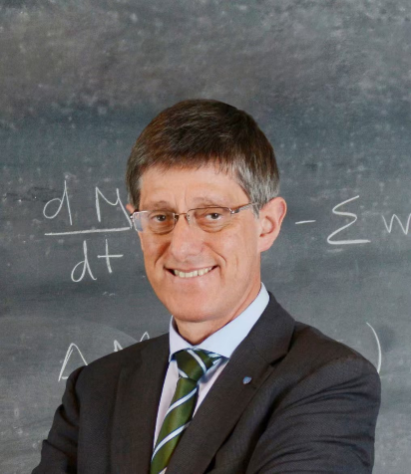
Arlindo Oliveira
Arlindo Oliveira is a scholar and researcher with extensive experience in computer science, artificial intelligence (AI), machine learning, and bioinformatics. He has made significant contributions to education, scientific research, and technological innovation and has served as the president of Instituto Superior Técnico (IST), University of Lisbon, where he is now a distinguished professor. He is also a distinguished invited professor at MUST and executive chairman of the Institute for Computer and Systems Engineering (INESC) group.
Arlindo Oliveira obtained his Bachelor’s and Master’s degrees in Electrical Engineering and Computer Science from Instituto Superior Técnico, University of Lisbon, in 1986 and 1989 respectively. In 1994, he earned his PhD degree in Electrical Engineering and Computer Science from the University of California, Berkeley. Arlindo Oliveira’s expertise lies in algorithm design, machine learning, bioinformatics, artificial intelligence, computer-aided design, and other related fields. He has authored five books, translated into multiple languages and has published over 250 conference and journal articles in the fields of algorithms, artificial intelligence, machine learning, bioinformatics, and computer architecture.
Since 1995, he has been a senior researcher at INESC R&D (Institute for Systems and Computer Engineering, Research and Development). Since 2005, he has been a full professor at Instituto Superior Técnico, University of Lisbon and, since 2020, distinguished professor. He is, since 2020, a board member of Caixa Geral de Depósitos (CGD), Portugal's largest bank, and the founder and principal investigator of the Machine Learning and Knowledge Discovery Group of INESC R&D.
He has served on the boards of several companies and institutions and has held positions as the President of Instituto Superior Técnico, chairman of INESC R&D (Institute for Systems and Computer Engineering, R&D in Lisbon), and president of the Portuguese Association for Artificial Intelligence (APPIA). He was a visiting professor at MIT and a visiting researcher at the University of Tokyo. He is a member of the Portuguese Academy of Engineering and of the Lisbon Academy of Sciences, a fellow of the European Laboratory for Learning and Intelligent Systems (ELLIS) and a past member of the National Council for Science, Technology and Innovation and of the Advisory Board of the European Parliament's Science and Technology Options Assessment (STOA) Panel, as well as a member of IEEE and ACM.
He has received several awards and honors, including the 2009 Technical University of Lisbon / Santander Research Excellence Award, the 2024 GALP / Academy of Engineering Career Award and the 2024 Portuguese Association for the Digital Economy career award.
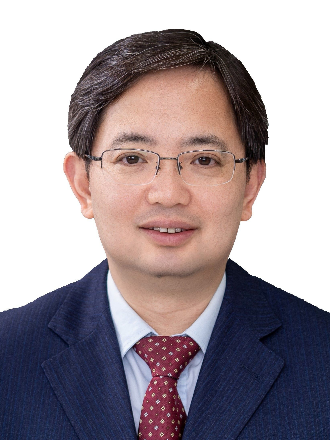
Zhi-Hua Zhou
Zhi-Hua Zhou is Professor of Computer Science and Artificial Intelligence, and Vice President of Nanjing University. His research interests are mainly in artificial intelligence, machine learning and data mining, with significant contributions to ensemble learning, multi-label and weakly supervised learning, etc.
Zhi-Hua Zhou was admitted to the School of Computer Science of Nanjing University in 1992. After he received his bachelor's, master's and doctoral degrees, he stayed at the university to teach from 2001. He was appointed as associate professor in 2002. He received the National Science Fund for Distinguished Young Scholars in 2003 and was appointed as professor in the same year. He was appointed as a supervisor of doctoral candidates in 2004 and was elected into the New Century National Talents Project (State Level) in 2009. He was elected as a member of Academia Europaea in 2017, and became the head of the School of Computer Science and Dean of the School of Artificial Intelligence of Nanjing University in 2018, and the vice president of Nanjing University in 2024.
He has authored the books “Ensemble Methods: Foundations and Algorithms”, “Machine Learning”, etc., and published more than 200 papers in top-tier journals or conferences. According to Google Scholar, his publications have received more than 100,000+ citations, with a H-index 129. Many of his inventions have been successfully deployed in industry. He founded ACML (Asian Conference on Machine Learning), serves as series editor of Springer Lecture Notes in Artificial Intelligence, advisory board member of AI Magazine, editor-in-chief of Frontiers of Computer Science, etc. He is the President of IJCAI Trustee, Fellow of the ACM, AAAI, AAAS, IEEE, etc., member of the Academia Europaea, and recipient of the National Natural Science Award of China, the IEEE Computer Society Edward J. McCluskey Technical Achievement Award, the CCF-ACM Artificial Intelligence Award, etc.
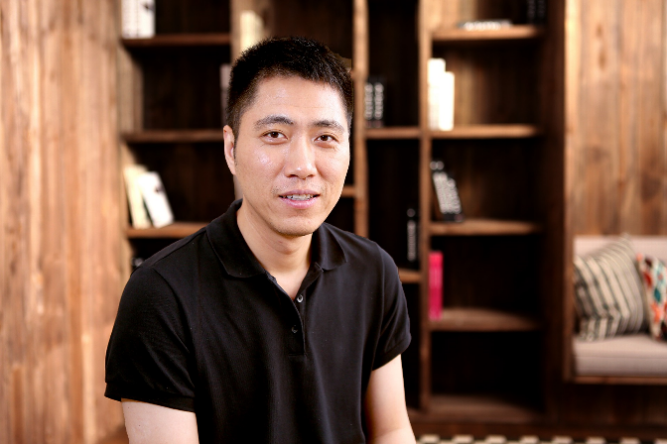
Wang Jun
Jun WANG (WJ) graduated Ph.D. from the Peking University in 2002, the same year as he received the national excellent Ph.D thesis for highest academic standing from the Ministry of Education, China.
Jun WANG, founder and CEO of “iCarbonX”, was one of the co-founders and CEO of Beijing Genomics Institute (BGI). He holds a bachelor’s degree in artificial intelligence and a doctorate in bioinformatics from Peking University. During his doctoral studies in 1999, he participated in the establishment of BGI and presided over many major projects with international influence, including the 1,000 Human Genomes, intestinal microbiota, complex disease research, tumor genomics project, and thousands of animal and plant genomes. It is now widely recognized as one of China’s premier research facilities, committed to excellence in genome sciences. WJ has been leading the scientific direction and daily operation of BGI genomics and its informatics part since 2002.
He has published more than 400 papers of world-class level, including over 100 articles in top international journals such as Cell, Nature, Science and The New England Journal of Medicine. His scientific research results have been cited about 50,000 times, with ten of his articles cited more than 1,000 times. Thomson Reuters statistics show that he has been rated as a “highly cited and most popular scientist” for several years in a row. He was named a National Outstanding Youth, a 973 Chief Scientist, a National Candidate of the New Century Talents Project, a National Outstanding Professional and Technical Talent, a National Model Worker, one of the Top Ten Global Scientists of 2012 by Nature magazine, one of the Global 40 Elites Under 40 by Fortune magazine, and one of the 100 “Most Influential People in the Next 25 Years” by CNBC in 2014.
